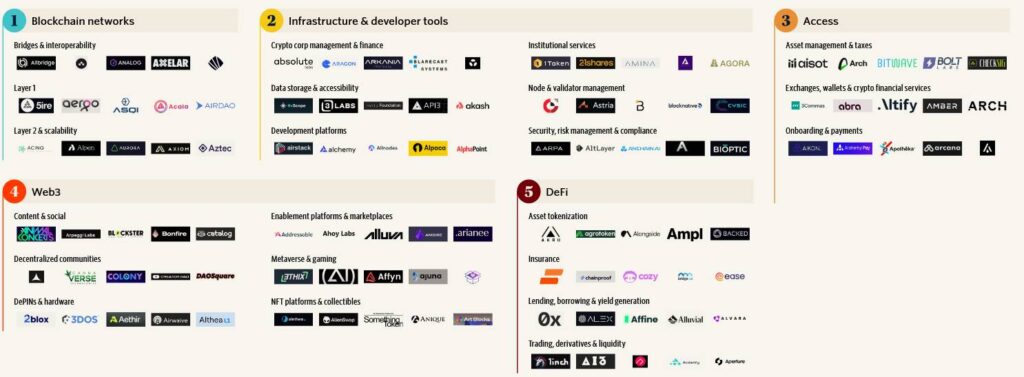In an exciting development for the Web3 landscape, Alchemy, a prominent developer platform, has announced its acquisition of HeyMint, a California-based non-fungible token (NFT) launchpad. This strategic move, announced on May 23, aims to bolster Alchemy’s smart wallet infrastructure, making it easier for users to navigate the world of Web3 applications. While the financial details of the deal remain undisclosed, the partnership promises to simplify user onboarding, a crucial step in attracting a broader audience to decentralized technologies.
Founded just two years ago, HeyMint has already made a name for itself, amassing over 1 million users and facilitating an impressive $38 million in NFT sales. Its client roster reads like a who’s who in the entertainment and gaming industries, including major brands such as The Sandbox, Universal Music Group, and Ubisoft. Notably, in 2023, HeyMint played a key role in facilitating NFT sales for the Partnership for Central America, a diverse coalition that counts Mastercard among its members.
Interestingly, this acquisition marks Alchemy’s second significant funding deal in May. Just prior, the company acquired Dexter Lab, a provider of real-time data infrastructure for Solana, signaling its aggressive expansion strategy within the crypto industry. The recent wave of mergers and acquisitions within the sector hints at a growing trend, particularly in the U.S., where regulatory clarity and a favorable administration appear to be fostering a more conducive environment for such deals.
“2025 is shaping up to be a more active year for crypto mergers and acquisitions,”
As noted by industry analysts, the landscape is becoming increasingly dynamic. Recent high-profile deals include Robinhood’s acquisition of Canadian digital asset operator WonderFi for $179 million and Coinbase’s $2.9 billion acquisition of Deribit. Coinbase’s CEO, Brian Armstrong, has expressed an eagerness to explore more M&A opportunities, reflecting the broader sentiment across the industry.
On the venture capital front, investment trends are equally promising. While the overall number of deals saw a decline last quarter, the total value of investments in the crypto space more than doubled compared to the previous year. This surge in venture funding suggests that investors remain optimistic about the future potential of cryptocurrency and blockchain technologies.
Alchemy Acquires HeyMint: Key Insights
The recent acquisition of HeyMint by Alchemy signifies a pivotal moment in the Web3 and NFT space. Here are the key points highlighting the implications of this merger:
- Alchemy’s Strategic Acquisition
- Acquisition of HeyMint aims to enhance Alchemy’s smart wallet infrastructure.
- HeyMint’s infrastructure will simplify user onboarding for Web3 applications, potentially increasing adoption rates.
- HeyMint’s Credibility and Reach
- HeyMint attracted over 1 million users in its first two years, indicating strong market interest in NFT launchpads.
- Facilitated $38 million in NFT sales, showcasing its capability within the NFT ecosystem.
- Supported major brands such as The Sandbox, Universal Music Group, and Ubisoft, enhancing its reputation.
- Market Trends in Mergers and Acquisitions
- Increased activity in crypto M&As reflects a bullish sentiment in the market.
- Regulatory clarity in the U.S. is fostering an environment conducive to strategic acquisitions.
- Recent high-profile deals, including Coinbase’s acquisitions, indicate a trend of consolidation in the industry.
- Impact on the Future of NFTs and Web3
- This acquisition may lead to more user-friendly experiences in NFTs, appealing to a broader audience.
- Could catalyze innovation in NFT technology and infrastructure, contributing to market growth.
- Strengthened partnerships with big brands may drive mainstream adoption of NFTs.
“2025 is expected to be a more active year for crypto M&As, backed by a favorable regulatory environment and increased venture capital funding.”
Alchemy’s Strategic Acquisition: Implications for the Web3 Landscape
The recent acquisition of HeyMint by Alchemy signifies a pivotal moment in the Web3 ecosystem, positioning Alchemy as a frontrunner in enhancing the smart wallet infrastructure necessary for seamless user onboarding. While HeyMint may not be a household name within the cryptocurrency community, its impressive user base of over 1 million in just two years illustrates a strong engagement that Alchemy can leverage to gain a competitive advantage. This integration enables Alchemy to simplify the complexities often associated with Web3 applications, streamlining the user journey.
Competitive Advantages: One of the most compelling aspects of this acquisition lies in HeyMint’s track record; having facilitated $38 million in NFT sales and collaborated with industry giants such as The Sandbox and Universal Music Group, the integration with Alchemy could attract more brands looking to venture into the Web3 space. Furthermore, the acquisition reflects a broader trend in the crypto sector where M&A activity is gaining momentum. As major players like Coinbase and Ripple make significant acquisitions, Alchemy’s strategic move positions it to not only keep pace but also potentially outstrip competitors who may be slower to integrate similar capabilities.
Potential Disadvantages: However, the acquisition does come with challenges. The landscape of Web3 is still filled with regulatory uncertainties, and new integrations can lead to unforeseen technical hurdles. Additionally, Alchemy must match the existing user experience provided by HeyMint to prevent any loss of user trust or engagement during the transition period. If not managed effectively, this could create friction for users already accustomed to a specific platform environment.
This move is likely to benefit both established players in the Web3 space and emerging brands looking to launch NFTs with a robust infrastructure. Conversely, it could pose challenges for smaller platforms that may struggle to compete against a now more powerful Alchemy that has combined resources with an innovative launchpad. As the landscape becomes increasingly competitive, smaller firms might find it daunting to maintain market share while navigating the shifting dynamics of user expectations and technological advancements.

















